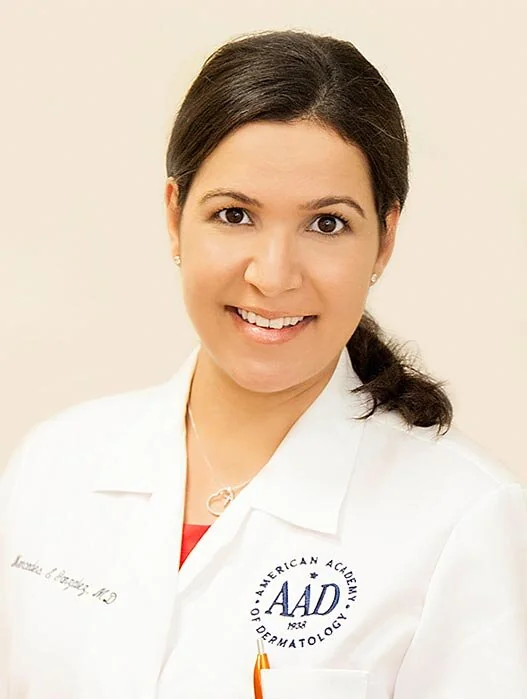
Treatments for Atopic Dermatitis in Children
Is your child struggling with dry, itchy, or inflamed skin?
A new clinical trial is now enrolling children aged 6 to 11 with moderate to severe Atopic Dermatitis.
Clinical Trials for Atopic Dermatitis
At Pediatric Skin Research (PedSkin), we specialize exclusively in conducting clinical trials to advance new treatment options for children with skin conditions like Atopic Dermatitis (AD).
Our mission is to contribute to the development of safer, more effective therapies through carefully designed and closely monitored research studies.
Current Ongoing Trials at Pediatric Skin Research
We currently have four active clinical trials for pediatric patients with mild to severe AD:
| Clinical Trial | Age Group | Medication | Type of Treatment |
|---|---|---|---|
| Tralokinumab | 2-11 years | IL-13 antibody | Subcutaneous injection |
| Upadacitinib vs Dupilumab | 6-11 years | JAK1 inhibitor vs IL-4/IL-13 | Oral vs Injection |
| Roflumilast Cream | 3-24 months | PDE4 inhibitor | Topical cream |
| Nemolizumab | 12 years+ | IL-31 inhibitor | Subcutaneous injection (under investigation) |
Meet Our Medical Director

Dr. Mercedes E. Gonzalez is a board-certified pediatric dermatologist. After graduating from Emory University, she earned her degree at Rutgers–New Jersey Medical School in 2004. Always drawn to working with children, she accepted the prestigious pediatrics program at the Morgan Stanley Children’s Hospital of New York–Columbia University where she solidified her interest in treating skin disorders. She then completed a dermatology residency followed by a clinical fellowship in pediatric dermatology at the top-ranked New York University (NYU) Department of Dermatology.
Her gentle, child-friendly bedside manner, combined with her broad knowledge of childhood skin diseases and their treatments, make her the preferred pediatric dermatologist in Miami. In addition to practicing medicine, Dr. Gonzalez currently serves as a clinical assistant professor at The FIU Herbert Wertheim School of Medicine and The Phillip Frost Department of Dermatology at Miller School of Medicine.
Dr. Gonzalez serves as the principal investigator on numerous clinical trials and has a special interest in severe skin diseases in children. She lectures regularly at dermatology conferences and to medical students and residents and is the co-editor of 3 dermatology textbooks, including the recently published 2nd edition of Goodheart’s Same Site Differential Diagnosis, and has published over 50 journal articles.


Request An Appointment
To request an appointment, please fill out the contact form below. Our team will get back to you as soon as possible to confirm your appointment and answer any questions you may have. We look forward to assisting you.
Join Our Free Webinar
New Treatments for Atopic Dermatitis in Children
📅Date to Be Determined
Understanding Atopic Dermatitis (Eczema)
Atopic Dermatitis (AD) is a chronic skin condition that causes recurrent itchy, inflamed plaques on the skin. It is not life-threatening, but it can significantly impact a child’s quality of life, leading to sleep disturbances, discomfort, and increased risk of infections.
AD is caused by a combination of genetic, immune, and environmental factors that result in skin barrier dysfunction and excessive inflammation. Children with AD often experience flare-ups triggered by allergens, irritants, weather changes, or stress.

Prevalence and Impact
When to Consider Systemic Medications
Children with moderate to severe AD may need systemic (whole-body) treatments when:
- Topical treatments no longer work and flares continue.
- Itching and skin discomfort interfere with sleep, school, or daily activities.
- The treatment regimen is burdensome or ineffective.
- The child has other allergic conditions (asthma, food allergies).

